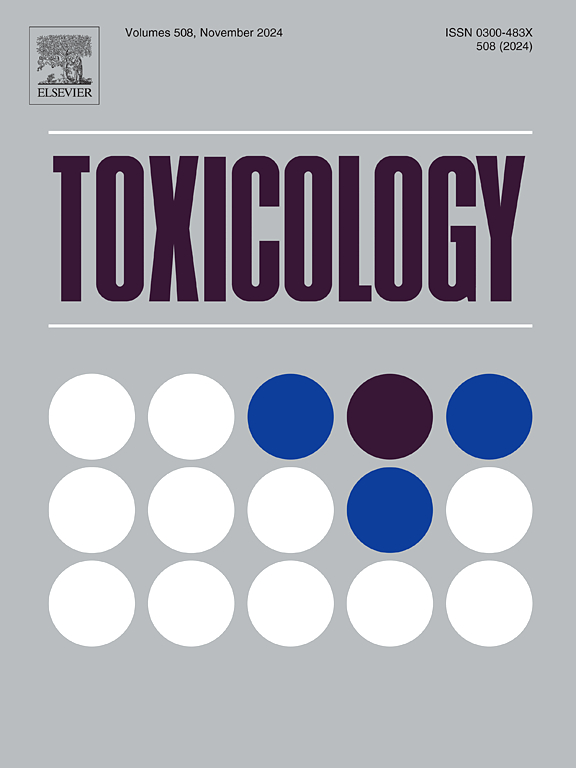FOXO3 mediated gene expression modulates doxorubicin sensitivity in human cardiomyocytes
IF 4.6
3区 医学
Q1 PHARMACOLOGY & PHARMACY
引用次数: 0
Abstract
Anthracyclines such as doxorubicin (DOX) are widely used and effective chemotherapeutic agents, but their clinical use is limited by dose-dependent cardiotoxicity, known as anthracycline-induced cardiotoxicity (AIC). Previously, we identified FOXO3 as a key transcription factor involved in cardiomyocyte stress response pathways. However, its precise role in modulating DOX sensitivity remains incompletely understood. This study aims to investigate the role of FOXO3 in cardiomyocyte transcriptional regulation and its impact on DOX-induced stress responses. By analyzing transcriptomic alterations in FOXO3-deficient cells, we seek to deepen the knowledge on FOXO3 and its potential role in cardioprotection. We generated a novel RNA sequencing dataset from immortalized human cardiomyocytes (hCMs) treated with DOX to compare global gene expression changes between FOXO3-depleted and control cells. Functional pathway analysis was conducted to identify dysregulated biological processes. FOXO3 nuclear translocation following DOX exposure was assessed through immunofluorescence, and key transcriptional changes were validated using RT-qPCR. We observed that DOX treatment induces FOXO3 nuclear translocation in hCMs and that FOXO3 depletion alters the transcriptional landscape of cardiomyocytes under basal conditions as well as after DOX exposure. Deregulated expression of genes related to DNA repair, oxidative stress response and apoptotic signaling, may explain the increased DOX sensitivity of FOXO3 depleted hCMs.
FOXO3介导的基因表达调节人心肌细胞对阿霉素的敏感性
蒽环类药物如阿霉素(DOX)是广泛使用的有效化疗药物,但其临床使用受到剂量依赖性心脏毒性的限制,即蒽环类药物诱导的心脏毒性(AIC)。在此之前,我们发现FOXO3是参与心肌细胞应激反应途径的关键转录因子。然而,其在调节DOX敏感性中的确切作用仍不完全清楚。本研究旨在探讨FOXO3在心肌细胞转录调控中的作用及其对dox诱导的应激反应的影响。通过分析FOXO3缺陷细胞的转录组学改变,我们寻求加深对FOXO3及其在心脏保护中的潜在作用的了解。我们从经DOX处理的永生化人心肌细胞(hCMs)中生成了一个新的RNA测序数据集,以比较foxo3缺失细胞和对照细胞之间的整体基因表达变化。进行功能通路分析以识别失调的生物过程。通过免疫荧光评估DOX暴露后FOXO3核易位,并使用RT-qPCR验证关键转录变化。我们观察到,DOX处理诱导hcm中FOXO3核易位,FOXO3缺失改变了基础条件下和DOX暴露后心肌细胞的转录格局。与DNA修复、氧化应激反应和凋亡信号相关的基因表达失调,可能解释了FOXO3缺失的hCMs对DOX的敏感性增加。
本文章由计算机程序翻译,如有差异,请以英文原文为准。
求助全文
约1分钟内获得全文
求助全文
来源期刊

Toxicology
医学-毒理学
CiteScore
7.80
自引率
4.40%
发文量
222
审稿时长
23 days
期刊介绍:
Toxicology is an international, peer-reviewed journal that publishes only the highest quality original scientific research and critical reviews describing hypothesis-based investigations into mechanisms of toxicity associated with exposures to xenobiotic chemicals, particularly as it relates to human health. In this respect "mechanisms" is defined on both the macro (e.g. physiological, biological, kinetic, species, sex, etc.) and molecular (genomic, transcriptomic, metabolic, etc.) scale. Emphasis is placed on findings that identify novel hazards and that can be extrapolated to exposures and mechanisms that are relevant to estimating human risk. Toxicology also publishes brief communications, personal commentaries and opinion articles, as well as concise expert reviews on contemporary topics. All research and review articles published in Toxicology are subject to rigorous peer review. Authors are asked to contact the Editor-in-Chief prior to submitting review articles or commentaries for consideration for publication in Toxicology.
 求助内容:
求助内容: 应助结果提醒方式:
应助结果提醒方式:


